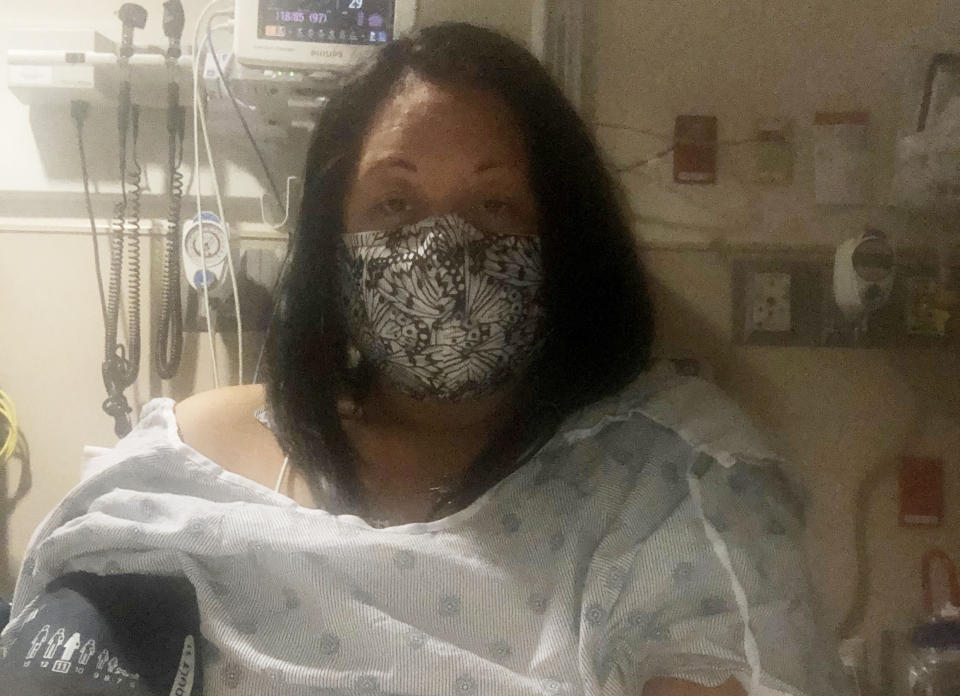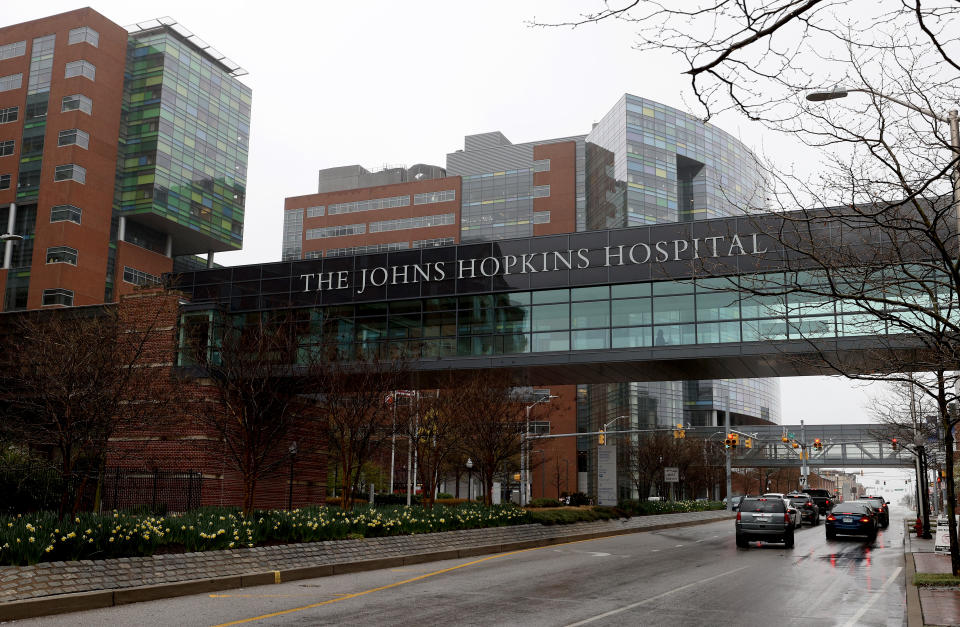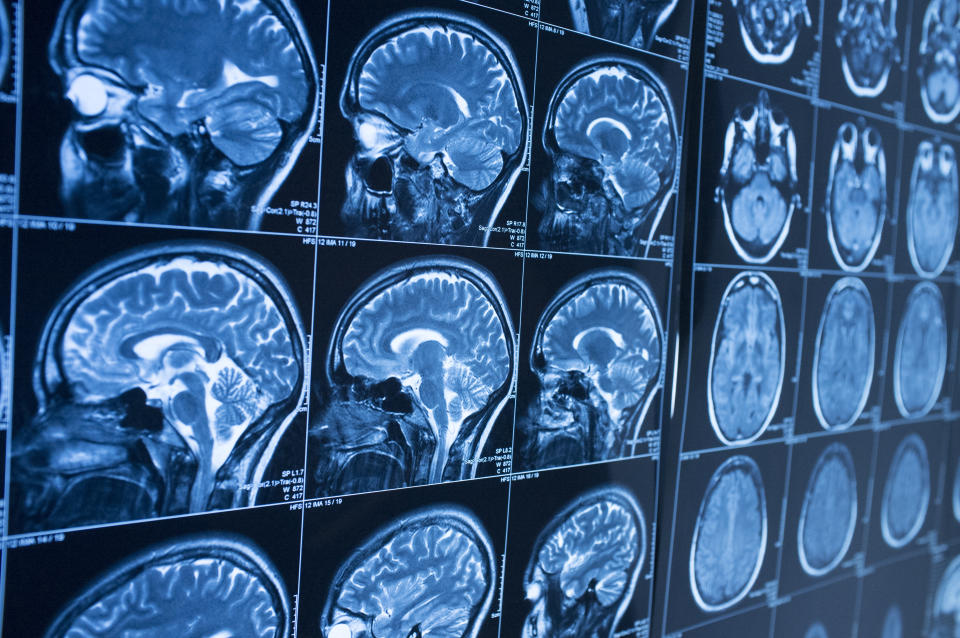As post-COVID heart and brain problems linger, some coronavirus survivors find it's a long haul to recovery
Jennica Harris, 33, is starting to believe she will never fully recover from the coronavirus. A fit and healthy Southern California mother of two, Harris fell ill in April after her husband, a commercial airline pilot, was infected. Her husband has recovered, and her children, who showed symptoms of the disease but were never tested, are now healthy — but Harris is still suffering flare-ups, when her heart rate jumps and she has to lie completely still. During these flare-ups, she also has severe bouts of diarrhea. When she’s sleeping, sometimes her pulse drops so low she awakens, gasping for breath. She is now waiting for results from a sleep study. Her brain feels foggy, she has started to stutter, she is extremely fatigued, and she gets debilitating headaches and dizzy spells along with muscle and joint pain. She said her vision is sometimes blurred and her hearing is now slightly impaired.

“I have been dealing with this for 105 days, and I’m afraid that I’m never going to get back to 100 percent,” Harris told Yahoo News in an interview. Bursting into tears, she added: “I couldn’t hold my son for months, and he started to cry when I would hold him because he wasn’t used to me holding him anymore. Right now he’s 10 months, and for months I couldn’t do anything for him. It’s extremely painful. ... My doctors say they don’t know if this is long term.”
Chelsea Alionar, 37, says she has been sick since contracting COVID-19 in March. Alionar, who works as a Medicaid auditor for the Oregon Health Authority, tried to go back to work in June, but is back home now because she can’t do her job.
“I have a resting heart rate of 130-plus beats per minute,” Alionar told Yahoo News in an interview. “I have an adrenaline feeling that is almost constant, that courses through my whole body — it feels super-shaky, like I just drank a carafe of coffee. ... It causes lightheadedness and dizziness and an internal shaking feeling.”
Alionar, who tested positive for the coronavirus in April but has since tested negative for antibodies, also is experiencing headaches and has lost hearing in one ear.

Neither woman was ever sick enough to be hospitalized. But both are part of a large and growing online movement of COVID-19 survivors who are still sick and who call themselves “long-haulers.” What unites them is outrage at how casually many Americans are treating the coronavirus threat and a sense of building dread regarding their own future health.
More than 3.9 million Americans have been infected with the coronavirus, and more than 142,000 have died. As with Alionar and Harris, many survivors are reporting ongoing symptoms, sometimes lasting for months after initial infection. Rehab centers have opened across Europe to help COVID-19 survivors recover, but there are only a few in the U.S.
Mount Sinai Health System in New York did recently launch a Center for Post-COVID Care. When announcing the effort, the hospital noted “mounting evidence” suggesting COVID-19 patients are at risk for “multiple systemic complications including thromboembolic disease [blood clots, including ones that may cause strokes], systemic inflammatory response syndrome, cardiovascular complications, and hepatic [liver] and renal [kidney] impairment.”
Dr. Allison Navis is the clinical neurologist for Mount Sinai’s center, where she has seen scores of patients suffering from headaches, cognitive problems and nerve pain. She said that for most of her patients, the neurological problems began well after the rest of their symptoms subsided, raising questions about whether the symptoms are due to the virus attacking major organs or are the result of an immune response to the virus. Navis is part of a research effort the hospital has launched to answer these types of questions by following COVID-19 patients for a full year after infection to track outcomes and by studying the brains of patients who died.
“A lot of my patients are younger, and I think what’s also interesting is a lot of them weren’t hospitalized,” Navis said in an interview with Yahoo News. “It’s very interesting that we are seeing these residual symptoms in people who we wouldn’t consider being the sickest of the sick with COVID, and it makes it harder to understand what’s going on.”
Navis said the autopsy studies underway prove the coronavirus can travel to the brain. She said other coronavirus diseases, such as the 2009 SARS outbreak, have also affected the nervous system. While patients who spend weeks on a ventilator, for any cause, typically experience residual brain fog, Navis said that most of the patients she is seeing for lingering neurological impacts were never on ventilators because they had mild cases.

A leading theory for why so many people with seemingly mild cases of COVID-19 are now in her clinic seeking help focuses on the blood clots that can accompany the virus.
“We’re seeing lots of little blood clots with COVID — we’re seeing big blood clots and on autopsy studies these teeny little micro-emboli,” Navis said. “They’re so small they don’t necessarily cause any major issues on their own, but if you get a lot of them in any particular organ they can. ... So there is kind of a question of maybe there’s some of these micro-emboli causing issues, especially in the brain.”
Navis said the most common neurological complications she has seen are cognitive problems. Most of her patients are young professionals who tell her “it’s a lot harder to do what they normally do; they feel like they’re making more mistakes.”
Svenn-Erik Mamelund is a social scientist who has studied the demography of epidemic diseases for more than 20 years. A professor at Oslo Metropolitan University in Norway, Mamelund has long focused on the 1918 pandemic, which infected about 500 million people worldwide and caused about 50 million deaths. In the years after that pandemic ended, there was a large uptick in reports of neurological and psychiatric problems worldwide. Mamelund studied asylum hospitalization records in Norway from 1872 to 1929 and discovered that mental disorders attributed to that virus surged by an average annual factor of 7.2 in the six years following the pandemic.
Mamelund’s research shows that many survivors of the 1918 pandemic also reported problems sleeping, dizziness, depression and difficulties at work.
“We have so many anecdotes from so many countries from the mother of all pandemics, the 1918 flu pandemic,” Mamelund told Yahoo News in an interview. “People had lots of psychiatric symptoms following this disease. We cannot really say what factors were the most important in explaining these long-term impacts, but those [who had the flu] at least did have long-term states of coma, problems sleeping, insomnia or coping at work and with everyday life for months and even years after the 1918 flu.”
He said that after the 1889 Russian flu and the 2009 H1N1 pandemic, many infected people reported similar neurological symptoms.

Robert Stevens, an intensive care physician at Johns Hopkins Hospital in Baltimore, said he has personally noticed that “a striking number” of the COVID-19 patients he has treated have presented with neurological symptoms, including cognition problems, strokes and seizures.
Stevens said he decided to begin collecting data as he talked to colleagues in intensive care units around the world about the unusual number of neurological manifestations of COVID-19 he was seeing in his Baltimore ICU. He ultimately hopes to build a database of several thousand patients.
Stevens said about half of the patients have lost their sense of smell and taste, which he believes is a neurological manifestation of COVID-19. Between 3 and 5 percent of these patients have had ischemic strokes, Stevens said. He has not personally treated patients with encephalitis — a rare and serious inflammation of the brain — but said about a dozen cases have been reported, including a handful of cases of “actual viral invasion of the brain.”
Noting that many COVID-19 patients require far larger than normal doses of painkillers to get relief, Stevens speculated that this change in drug tolerance might be related to the neurological impacts of the virus.
“They’re getting sometimes five times more than what a non-COVID patient would require in terms of sedative doses,” he said. “The obvious concern or suggestion here is, could there be a viral-induced reduction in sensitivity to these very powerful sedative drugs? ... I suspect that’s neurologic.”
Stevens said that one-third to half of all ICU patients who spend time on ventilators experience long-term problems with cognition — trouble concentrating, headaches, anxiety and depression.

“This is very common in long-term ICU survivors independently of COVID, so it’s not surprising we would see similar phenomena in people with COVID,” he said. “It’s important to separate what we think is a real effect of the virus [from] the physiologic or immunologic changes induced by the virus.”
Jennica Harris needs answers soon. She is terrified about how COVID-19 will affect her later in life. Her whole family is in counseling for PTSD. Her flare-ups still come every couple of weeks, and her menstrual cycle is in overdrive (she has had three periods in 45 days). She is awaiting results from her cardiologist after wearing a heart monitor to help determine if her heart was permanently damaged by the virus. She still has to concentrate very hard in conversations with her husband in order not to lose track of her thoughts. She said she often feels like she is moving in slow motion.
“We have years to go to know if us long-haulers will have long-term effects or not,” Harris said. “I’m young, and I was healthy and working out days before I caught COVID. Not only does it affect you physically — the mental part of it is a whole other beast. It makes you angry, and it makes you anxious.”
_____
Read more from Yahoo News:


